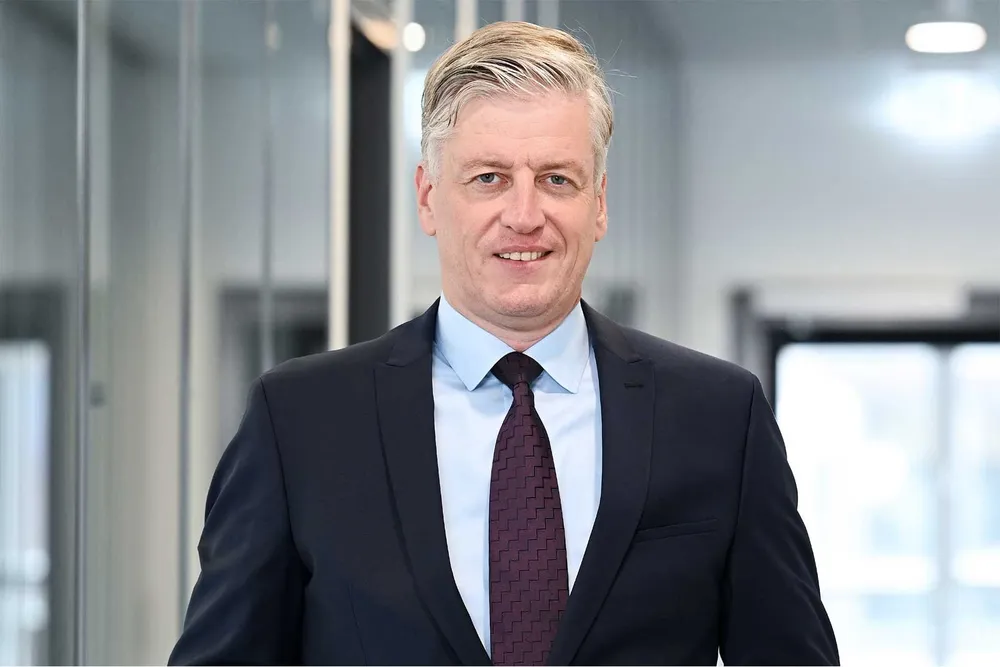RWE leads Europe into a brave world of gigascale battery parks
RWE put first 220MW battery energy storage system into operation at the former coal-fired power station one month ago, but facility will eventually be much bigger

Germany utility RWE is to build a massive battery storage facility on the site of its own former coal-fired power station in Hamm, in the North-Rhine-Westphalia region of the country.
RWE announced on Friday that it will build three new battery parks with a total installed capacity of around 600MW.
The investment was described as being in the hundreds of million euros and is incremental to an earlier 220MW battery energy storage (BESS) system that went into operation at the same facility in February.
The site in Hamm will have a total storage capacity of 1.35GWh — generating maximum output for up to two hours at a time — when the three new parks are concluded in 2028.
“With the expansion of renewable energies, the need for technologies that can instantly counteract imbalances in the electricity grid is increasing,” stated Nikolaus Valerius, CEO of RWE Generation.
The facilities are intended to help stabilise the energy market by cost-effectively balancing out short-term fluctuations.
“Battery storage systems are ideal for this because they are fast and efficient. The massive expansion of our storage capacity at the Westfalen power plant will make Hamm the battery storage flagship location of Germany,” Valerius added.
Valerius said the battery energy storage BESS system will permit “efficiently storing surplus energy and feeding it into the grid in a targeted manner - with a dampening effect on electricity prices for consumers and industry”.
Inertia boon
Maintaining grid stability is becoming increasingly challenging for countries with a rising share of renewables in the energy system, especially in Germany where 63% of electricity comes from green sources.
In addition to helping to balance and stabilise the electricity grid, RWE emphasised the growing array of grid services that new BESS systems are able to provide.
“By using state-of-the-art control technology and super-fast inverters, the new battery storage systems can provide balancing power within milliseconds,” the company stated, describing the increasingly important role that instantaneous reserve, or inertia, is playing as “the fastest available balancing energy in the grid system”.
“Inertia has mainly been provided by rotating masses of turbines, traditionally from coal-fired power plants. As renewable energies continue to replace conventional generation plants, the number of rotating generators is decreasing. Battery storage systems can compensate for this loss of inertia,” RWE stated in its release.
RWE said the expansion project will require installation of more than 25,000 lithium-iron LFP batteries in 316 overseas containers.
Initial preparatory construction activities are underway with the new battery systems scheduled to go into operation between 2026 and 2028.
RWE develops, builds and operates battery storage systems in the USA, Europe and Australia. The company currently operates BESS systems with a total capacity of around 1.2GW.
“As an integral part of its growth strategy, RWE plans to significantly expand its battery storage capacities worldwide,” the company stated.
Scottish solution
Largescale BESS projects are playing a growing role in helping European countries enter into a more advanced state of the energy transition, characterised by a growing dominance of intermittent renewable sources of generation and a need for massive grid upgrades.
In the UK last week, Zenobē announced today that its Blackhillock battery site in Scotland had begun commercial operations.
The 200MW/400MWh BESS system, which will undergo a second phase of development into next year to reach 300MW, is located between Inverness and Aberdeen and is designed to address grid congestion from three nearby offshore wind farms, Viking (443MW), Moray East (950MW) and Beatrice (588MW).
Zenobē founder and director James Basden said the Blackhillock project will add over 30% to Scotland’s operational battery capacity. It will provide stability services to the National Energy System Operator (NESO) with route to market through EDF Energy's Powershift trading platform.
(Copyright)